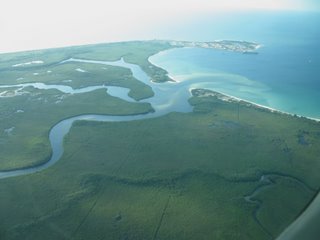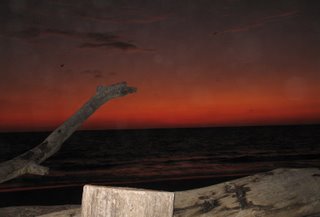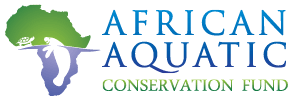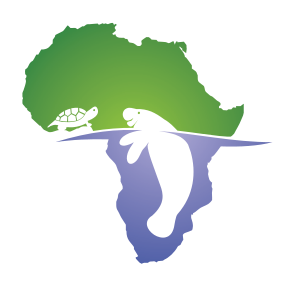Detour To Libreville
On Monday I left Iguela in a truck with 8 others from Iguela, and we bumped along the sandy track across the savannah for the hour and a half drive to the airport at Ombooue. We then took a short flight to Port Gentil, where Tim and I had a really nice lunch with Francois, his good friend who has driven the whale boat for many seasons here. Tim said I was suffering from “the Iguela Effect” because all I wanted was salads! I ate two in rapid succession. It’s hard to get fresh veggies and fruits at Iguela because they don’t have a garden and everything has to be brought in.
On Tuesday I spent a frustrating 9 hours in the Port Gentil airport after my flight to Gamba was cancelled. The airlines here are small companies, often with only a few planes, so when one of them (or in my case 2) break down, it’s just not possible to get to your destination. I tried the only other airline there that had flights to Gamba, but they were reserved by Total Gas. There are so many oil company people here, that gas companies reserve entire flights for their staff. I was finally able to change my ticket to return to Libreville and got back here Tuesday night.
 This is a picture of the peninsula at Port Gentil, which is the westernmost point in Gabon, and the site of an old whaling station. Tim would like to try to collect samples of old whale bone there, to look at DNA and compare it with samples they get from living whales now.
This is a picture of the peninsula at Port Gentil, which is the westernmost point in Gabon, and the site of an old whaling station. Tim would like to try to collect samples of old whale bone there, to look at DNA and compare it with samples they get from living whales now.
 The sunset Tuesday night at the local favorite beach bar in Libreville, a great place to get a Regab and watch the sun go down.
The sunset Tuesday night at the local favorite beach bar in Libreville, a great place to get a Regab and watch the sun go down.
So now I’m thinking about what else I might do to learn about manatees with my remaining one and a half weeks in Gabon. Unfortunately due to logistics, I won’t be able to get to Gamba. Planes fly there only a couple times a week, and with such a big lagoon, I’d need more than a few days to do any meaningful surveys there. Hopefully I’ll get there next time. I’m now hoping to get to Akanda National Park, just north of Libreville. They had a manatee carcass there (a year or so ago I think) and I may be able to combine my fieldwork with Angela, a sea turtle researcher I’ve just met who also wants to survey there.


Hi Lucy,
I’m a former Peace Corps volunteer who worked in Gabon for almost 4 years and I’ve been following your adventures with great interest. I currently work for your former employer, the FL FWC, and was alerted to your work by Tom Reinert. It’s been almost four years since I returned from Gabon and I must say I’ve never stopped missing it, so it’s nice to be able to see photos and hear news from there. I’m very upset to hear of the illegal oil exploration in Iguela, it’s sickening to think of that beautiful place being dynamited and it’s animals killed or disturbed. I hope that enough pressure by WCS and others will convince Bongo to reign in his underlings and resolve the situation.
At some point when you have time I’d be very interested in any advice you could offer regarding developing a research project in Gabon. I’ve long been interested in doing marine fisheries research there, and have honestly been surprised that nothing is being done in that regard. The Gabonese people rely heavily on marine fish as a source of protein, which ironically comes largely from West African countries, due to a lack of any substantial indigenous commercial fisheries. In any case, I’m sure you have more than enough to think about for the moment and I wish you the best of luck in completing your time there. That sucks about your plane to Gamba, but is very typical of the travel situation in Gabon. Hopefully you’ll be able to collect some good data from up north, by the way is that Angela Formia who you met? One other thing, I wanted to mention that I once spotted a manatee near the village of Panga, at the mouth of the river which exits into the ocean there. This village is on the coastal plain, along the road from Mayumba to Gamba, and can been found on any map of Gabon. Sorry for this long-winded post, I seem to always get carried away when talking about Gabon. Good luck with your research and have a safe return home.
Cheers,
Ariel Poholek
Ariel Poholek, Biological Scientist II
Fish & Wildlife Research Institute
FL Fish & Wildlife Conservation Commission
Tequesta Field Lab
PO Box 3478
Tequesta, FL 33469
(561) 575-5408 ext.23 (561) 743-6228 fax
SC 221-5408 (561) 715-9689 cell
[email protected]